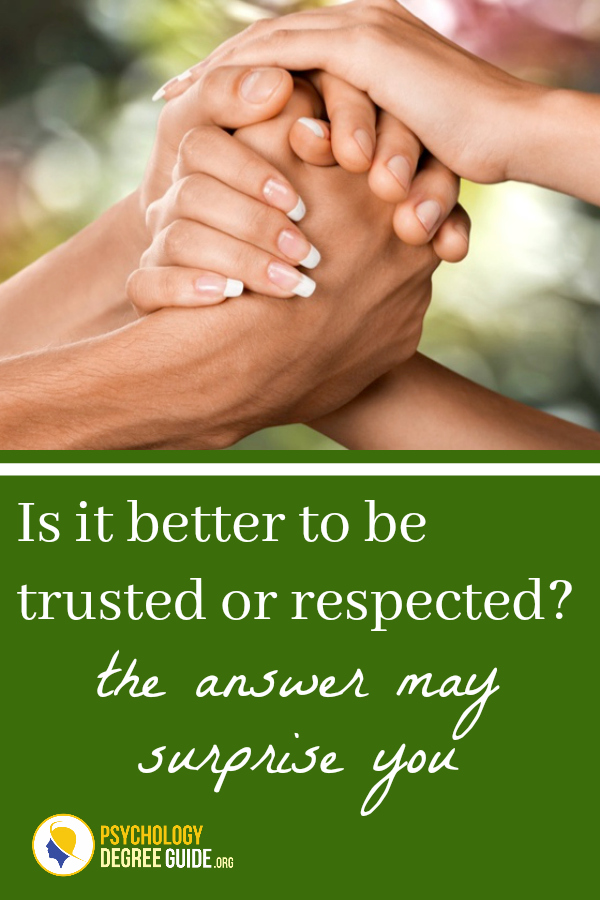Is it Better to be Trusted or Respected? The Answer May Surprise You
- May 18, 2017
- Posted by: Administrator
- Category: Psychology Explained,

There’s an old axiom that has survived through the years because it’s so true: You don’t get a second chance to make a first impression.
Yes, first impressions count, both in personal and professional relationships, but when it comes to those first impressions, what are people really looking for?
Sponsored School(s)
Harvard Business School professor and social psychologist Amy Cuddy is an expert in analyzing first impressions and she says that when people first meet you they tend to look at two things:
- Is this person trustworthy?
- Is this person respectable?
Psychologists refer to these two elements as warmth and competence and it’s easy to see why they would be highly valued in relationships. The interesting question to ask yourself is… which is more important?
Generally in professional situations (whether that be in the workplace or on a college campus), we tend to think that being seen as competent is most valued by our peers. We want to come off as smart, intelligent, capable. Maybe even an expert. Who wouldn’t want to work with an expert, right?
In this case, you may skip social events and instead focus on wowing your coworkers in meetings with your professional insights. What you’ll be missing is that it’s actually more important for others to TRUST you before you impress them with your smarts. Strength without trust can actually be perceived as a threat. Cuddy says:
If someone you’re trying to influence doesn’t trust you, you’re not going to get very far; in fact, you might even elicit suspicion because you come across as manipulative. A warm, trustworthy person who is also strong elicits admiration, but only after you’ve established trust does your strength become a gift rather than a threat (Goudreau, 2016).
That might seem nonintuitive, but just think about it evolutionarily. Back in caveman days, would it have been more important socially to know the person sitting next to you was a really good hunter or to trust that he wouldn’t kill you in your sleep and steal your food? Trust always wins out over smarts (or, in psychology terms, warmth trumps competence), at least in our initial interactions with people.
Amy Cuddy’s book, Presence: Bringing Your Boldest Self to Your Biggest Challenges (2015), reveals this truth and much more about how we are judged when first meeting new people and how we can use these interactions to our benefit. You may remember Cuddy from her famous TED talk about “power poses” (2012), where she argued that how you present yourself can impact your own self confidence as well as how others see you. Being aware of how others judge us is an important first step in taking control over our first impressions… which is also a first step to increasing our success in both private and professional relationships.

References
Cuddy, A. (2012) Your body language shapes who you are. Retrieved from https://www.ted.com/talks/amy_cuddy_your_body_language_shapes_who_you_are
Cuddy, A. (2015) Presence: Bringing Your Boldest Self to Your Biggest Challenges. New York, NY: Little, Brown and Company.
Goudreau, J. (2016) A Harvard psychologist says people judge you based on 2 criteria when they first meet you. Retrieved from https://www.businessinsider.com/harvard-psychologist-amy-cuddy-how-people-judge-you-2016-1






